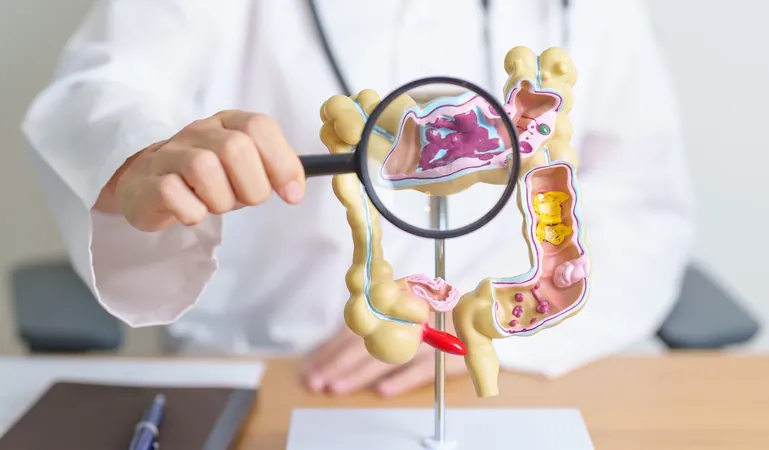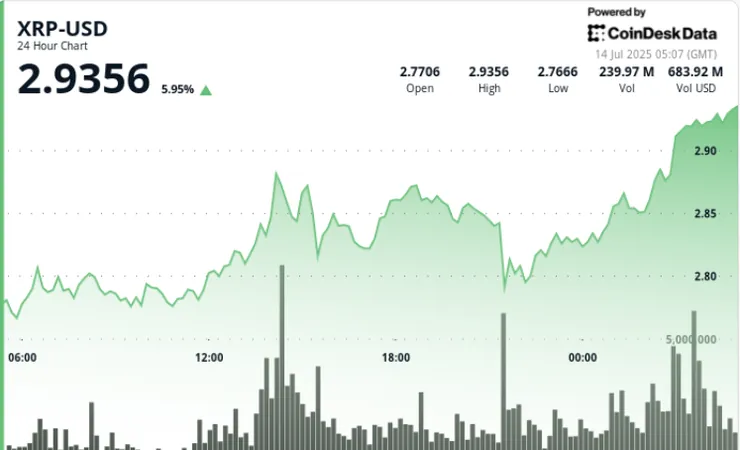
Cracking the Code: How an Anti-Inflammatory Diet Can Boost Survival in Stage III Colon Cancer
2025-06-03
Author: John Tan
Groundbreaking Findings at ASCO Annual Meeting
Shocking new research unveiled at the American Society of Clinical Oncology Annual Meeting reveals that patients battling stage III colon cancer can significantly improve their survival rates simply by adopting an anti-inflammatory diet. This game-changing study, spearheaded by experts at Dana-Farber Cancer Institute, utilized data from a massive phase III clinical trial that began in 2010, aiming to uncover methods to reduce the recurrence of colon cancer.
Diet and Survival: What You Need to Know
In a compelling statement, Dr. Sara Char, the study's lead author and a clinical fellow in Hematology and Oncology at DFCI, highlighted a critical question that often plagues patients: how can they effectively minimize the risk of cancer returning post-treatment? "Our findings emphasize the crucial role that dietary choices and physical activity play in the outcomes for colorectal cancer patients," she explained.
The Clinical Trial: A Deep Dive
The study analyzed data from 2,526 patients who had undergone successful surgery and received adjuvant chemotherapy, some in conjunction with celecoxib, a well-known anti-inflammatory drug. Researchers aimed to determine if systemic inflammation—previously linked to cancer development—could also be modulated through diet to positively affect survival.
Scoring the Inflammation: The EDIP System
As part of the trial, participants filled out detailed questionnaires about their eating habits and exercise routines. Those responses were used to calculate an Empirical Dietary Inflammatory Pattern (EDIP) score, a measure that assesses the inflammatory potential of one's diet. Diets laden with red and processed meats, refined grains, and sugary drinks were marked as pro-inflammatory, while meals rich in coffee, green tea, leafy vegetables, and fruits were deemed anti-inflammatory.
Survival Rates: The Startling Differences
The results were staggering. Patients with the most pro-inflammatory diets—a terrifying top 20%—faced an astonishing 87% higher risk of death compared to those with the least inflammatory diets. Even after adjusting for various factors, this concerning trend held firm. "Patients in the highest EDIP score quintile had drastically worse overall survival rates compared to those in the lowest quintile," the researchers revealed.
The Power of Physical Activity
Moreover, the study illuminated the powerful role of physical activity. Individuals who actively engaged in regular exercise—think walking three or more times per week—while following an anti-inflammatory diet boasted the best survival rates. Those adhering to healthier diets and maintaining physical activity were found to have a 63% lower risk of death.
Next Steps: A Call for Further Research
This groundbreaking research builds on earlier evidence linking inflammation to colon cancer outcomes. Previous studies showed that anti-inflammatory medications like celecoxib could reduce recurrence in some patients, though this study found no significant connection between celecoxib use and diet-related survival outcomes.
Co-senior author Dr. Kimmie Ng emphasized, "This study reinforces the idea that diet can be a critical factor in enhancing the survival of stage III colon cancer patients. More research is essential to develop tailored dietary guidelines and demystify the biological connections between pro-inflammatory diets and survival rates."
Looking Ahead: Future Research Directions
Future investigations will delve into whether these striking relationships hold true for metastatic colon cancer patients and for those diagnosed under the age of 50. Furthermore, Dana-Farber is set to explore the biological markers that might bridge the gap between dietary inflammation and survival.



 Brasil (PT)
Brasil (PT)
 Canada (EN)
Canada (EN)
 Chile (ES)
Chile (ES)
 Česko (CS)
Česko (CS)
 대한민국 (KO)
대한민국 (KO)
 España (ES)
España (ES)
 France (FR)
France (FR)
 Hong Kong (EN)
Hong Kong (EN)
 Italia (IT)
Italia (IT)
 日本 (JA)
日本 (JA)
 Magyarország (HU)
Magyarország (HU)
 Norge (NO)
Norge (NO)
 Polska (PL)
Polska (PL)
 Schweiz (DE)
Schweiz (DE)
 Singapore (EN)
Singapore (EN)
 Sverige (SV)
Sverige (SV)
 Suomi (FI)
Suomi (FI)
 Türkiye (TR)
Türkiye (TR)
 الإمارات العربية المتحدة (AR)
الإمارات العربية المتحدة (AR)